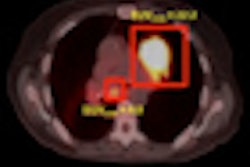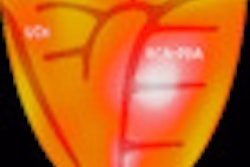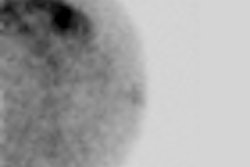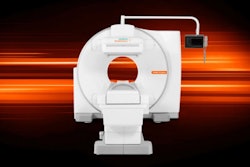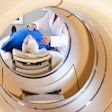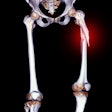Dear Molecular Imaging Insider,
This issue of the Insider offers an exclusive first look at a study from Swiss researchers, who found that PET/CT scans with the radiopharmaceutical choline can change treatment plans for certain patients with recurrent prostate cancer.
The study, from University Hospital Zurich, showed that choline-PET/CT significantly affected therapy management for 78 (48%) of 163 patients, some of whom had prostate-specific antigen levels of 2 ng/mL or less -- levels at which it can be especially difficult to find positive results. Read more about the study by clicking here.
In other top features, a study from MD Anderson Cancer Center concluded that PET can provide strong indicators of overall and disease-free survival among patients with locally advanced non-small cell lung cancer (NSCLC) receiving radiation therapy. The researchers found that higher residual standardized uptake values from PET scans acquired after radiation therapy are a sign of poorer overall and disease-free survival for NSCLC patients.
Meanwhile, PET imaging with the radiotracer florbetapir can detect high levels of beta amyloid -- linked to a higher risk of Alzheimer's disease and decreasing mental performance -- in the cortical regions of brains of cognitively normal adults. Researchers in Texas reported that PET with florbetapir showed that the amount of beta amyloid in people's brains increased with age, with approximately 20% of adults age 60 or older having significantly elevated levels.
PET developer Positron is embarking on a plan to develop its own capability to produce strontium-82, the precursor isotope to rubidium-82. The company believes that a more stable supply of strontium and rubidium will lead to increased sales of its cardiac PET scanners and help the company evolve into an end-to-end supplier of cardiac PET equipment and radiopharmaceuticals.
It may come as a surprise to some vendors and industry observers, but it appears that PET scanner sales in the U.S. have reversed a five-year decline, although the modality continues to struggle internationally. A new market study by Bio-Tech Systems found that total U.S. sales volume of new PET systems, refurbished units, and PET/MRI scanners increased by 22% in 2010. Does that match your experience? Let us know.
Finally, researchers have found that routine use of follow-up PET/CT scans can detect local head and neck cancer recurrences before they become clinically apparent. The hybrid modality may help improve outcomes of subsequent salvage therapy, according to the study from Michigan.
Be sure to visit the Molecular Imaging Digital Community on a daily basis, as we continue to report on novel research presentations and the latest news from the field of molecular imaging.





